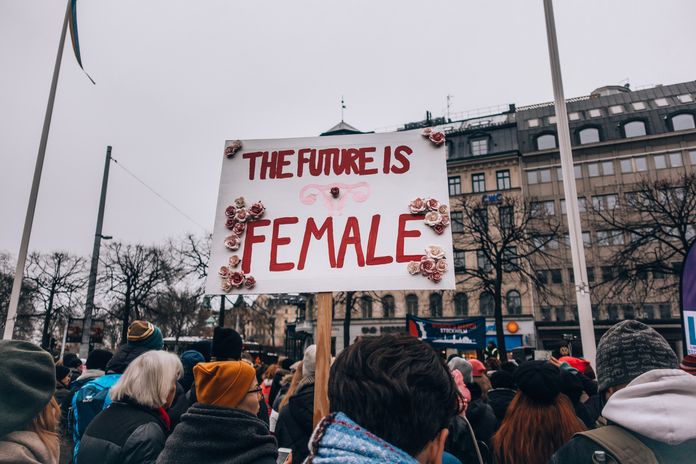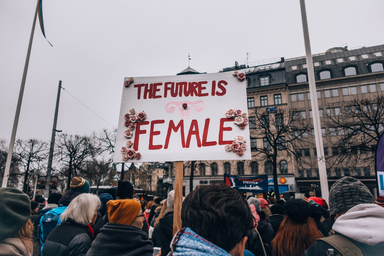As a woman myself, I often analyse adverts or simply how women are represented on TV. I realized that women are too often sexualised and objectified in advertisements. In this article, I am going to discuss how this representation impacts us all.
To get started, it would be interesting to go deeper into the term ‘sexualization’. It occurs when ‘a person’s value comes only from his/her sexual appeal or behavior, to the exclusion of other characteristics or that a person is sexually objectified’ (American Psychological Association, 2007). I find it disturbing the number of advertisements where we see a woman in a sexual or provocative position; we see a woman reduced to being just an object. Moreover, women are used much more in ads of perfumes, clothes or household products, being reduced to images of only taking care of the house. A study has shown that to sell a product using sex in an advertisement, female characters are used much more than male characters (Monk-Turner et al., 2007). In fact, as Jhally (2009) explains ‘in modern advertising, gender is probably the social resource that is used most by advertisers’.
Between the 19th and 20th centuries, material culture developed widely, which led to the development of advertising as people started to consume more. As a result, advertising practitioners sought to know how to influence people to consume their products. Indeed, they know for a fact that showing a sexy image of a woman will catch the eye of men, teenagers and even women. This is what is serious. The female body is used to enrich brands and advertisers with money. In this way, we can see that advertising holds an almost vital place in the economy of society. Only, should women be a collateral damage to advertising?
How does it impact us all?
The image of women in advertisements affects us all, sometimes for good but often for bad. Why? Simply because we are all consumers and because these images reach us in one way or another.
Men are influenced by this image because it attracts them. They are more interested in the product because a woman is staged. Women are also influenced by these images but in a different way. Often, advertisements want to make women feel envious; ‘you want to be like this’, ‘you have to be slim, sexy and beautiful, to please men’. Moreover, women don’t recognize themselves in the majority of advertisements as the images represented are an ideal, a male fantasy. Curvaceous, independent, ambitious, hard-working and powerful women are too little (if not) represented in the advertisements. Why? Because that does not sell.
The indirect impact
It needs to change because it impacts us negatively. Children, boys and girls alike, born visualizing this sexualized image of women, do not have a true representation of it. What will young men think when they see women represented in this way? What will he do? What will young girls say to themselves when they see this kind of advertisement highlighting a woman who is sexualized and objectified? They might think that they have to fit in, to look alike, BUT NO. This image needs to change for us women and our well-being, because women don’t have to be a collateral damage to the advertising economy. It also needs to change for future generations.
Society, by imposing standards of beauty through advertising, inflicts on women a judgement that they should not have to suffer. A medical study shows that repeated exposure to the thin-ideal body image can have a very negative impact on women in terms of their self-esteem, body satisfaction and can also lead to eating disorder symptoms (Hawkins et al., 2004). Besides women who suffer from these sexist ads, it sends a negative image of women to the rest of society.
Women must already prove themselves in society, by working harder to find a place. So please, let us be who we want to be without reducing us to fantasies, objects or standards. Thank you!




